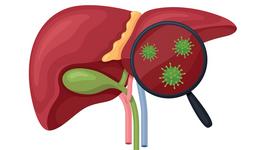Liver-Directed AAV-HITI Shows Promise in Mouse Models of Inherited Metabolic Diseases
CMN Intelligence - The World’s Most Comprehensive Intelligence Platform for CRISPR-Genomic Medicine and Gene-Editing Clinical Development
Providing market intelligence, data infrastructure, analytics, and reporting services for the global gene-editing sector. Read more...
Pre-clinical studies and clinical trials have demonstrated that a single intravenous dose of AAV-based gene therapy can have long-term therapeutic impact by turning hepatocytes into factories for efficient and prolonged transgene expression and secretion of therapeutic proteins into the blood.
However, the non-integrative nature of AAV genomes precludes their use in newborns, because liver growth leads to AAV genome loss over time. In addition, repeat dosing is hampered by the risk of antibody generation against AAV caspids. These limitations reduce the therapeutic potential for AAV-based gene therapy in newborns and highlight the need for alternative approches in this group, since early intervention is critical for early-onset inborn errors of metabolism such as mucopolysaccharidosis and haemophilia.
Researchers in Germany and Italy now report the long-term effectiveness and safety of a CRISPR-Cas9 based approach known as homology-independent targeted integration delivered by adeno-associated viral vectors (AAV-HITI).
AAV-HITI exploits the efficiency of CRISPR-Cas9 gene editing to facilitate the integration of full-length HITI donor DNA into the target site. Following nuclease cleavage, donor DNA is preferentially integrated into the target site, ensuring stable and sustained expression of the therapeutic gene.
The team, which was led by Alberto Auricchio at Telethon Institute of Genetics and Medicine (Italy), shows that AAV-HITI provides sustained transgene expression from newborn and adult mouse livers, without detectable off-targets or large gene rearrangements, and that the strategy appears to be safe without evidence of hepatocellular carcinoma at the tested doses for at least one year.
The researchers note that AAV-HITI is effective at AAV doses considered safe if directly translated to humans, as their data demonstrates therapeutic efficacy in the adult and newborn mouse livers.
Read the full article in Cell Reports Medicine here.
Tags
ArticleCMN BriefsNewsHaemophiliaMetabolic disorderMucopolysaccharidosis I, MPS I
CLINICAL TRIALS
Sponsors:
Base Therapeutics (Shanghai) Co., Ltd.
Sponsors:
Base Therapeutics (Shanghai) Co., Ltd.







